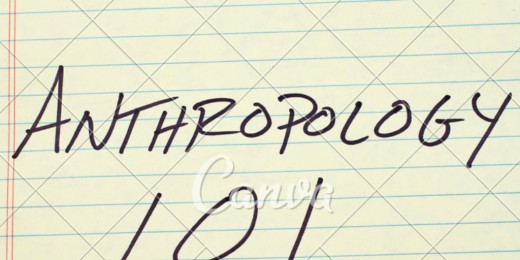definition of Anthropology:

1.What is Anthropology?
Anthropology
is “the study of human Being, in particular, the study of their
physical character, evolution history, racial classification, historical
and present-day geographic distribution, group relationships, and
cultural history. Anthropology can be characterized as the naturalistic
description and interpretation of diverse peoples of the world ”
(Britannica 1998: 446 vol.1). It is clear from this definition that the
anthropological study is interested in all things produced and related
to the human beings. In this sense it can be said that anthropology
reflects human’s behaviors in terms of giving more descriptive details.
This idea is demonstrated by Kluchan who considers anthropology as “a
great mirror to men” (Hoebel.1966:22). Indeed, it is a mirror since it
exposes the real image of all activities performed by the people in
their every-day life. That is to say, the function of this mirror is to
help people to know more and more about themselves.
2.Subdivisions of Anthropology
According to Hoebel (1966:7), the anthropological discipline is divided into two major subdivisions:
1. Physical anthropology.
2. Cultural anthropology.
1. Physical anthropology.
2. Cultural anthropology.
2.1.Physical anthropology
Physical
anthropology is defined as “the study of human physical character, in
both the past and the present.” (Britannica 1998:446 vol.1). According
to this definition, the task of physical anthropology is to offer
information concerning changes and developments of human beings in all the times, that is, the present and the past.
information concerning changes and developments of human beings in all the times, that is, the present and the past.
2.2.Cultural anthropology
Cultural
anthropology, unlike physical one, is interested in study of human’s
culture in relation to all his activities. That is to say, culture is
studied in terms of analyzing language, religion, politic, magic, law of
society, and other things (Britannica 1998:782 vol.10). According to
Hoebel (1966:8), cultural anthropology, as a subdivision of
anthropological discipline, is divided into five small subdivisions:
Ethnography, Ethnology, Social anthropology, Anthropological linguistic,
and Archeology.
Sometimes we can find the term ethnology replaced by cultural anthropology or social anthropology, that is, in American usage it is replaced by the term cultural anthropology, and in British usage it is called social anthropology (Britannica 1998:582 vol.4).
2.2.1 Ethnography:
Ethnography is defined as “a descriptive study of human society” (Britannica 1998:582 vol.4). The clearest support to this definition consists in Hoebel (1966:8) who argues that ethnography is a descriptive study of human society since it is concerned with “writing about people”.2.2.2 Ethnology:
Ethnology is concerned with “the analytical and comparative study of culture in general” (Britannica 1998:582 vol.4). In this sense, the task of ethnology lies in the fact that to compare various cultures so as to show their characteristics and similarities. On the other hand, Kroeber defines ethnology as the “science of peoples, their culture and life histories as groups” (Hoebel.1966:8). That is to say, in addition to the concern of ethnology with comparing cultures, it is also interested in studying relations among people themselves as the members of society, and between them and their culture.Sometimes we can find the term ethnology replaced by cultural anthropology or social anthropology, that is, in American usage it is replaced by the term cultural anthropology, and in British usage it is called social anthropology (Britannica 1998:582 vol.4).
2.2.3 Social anthropology:
Social anthropology is interested in the study of social relations generally. This idea is advocated by Hoebel (1966:8) who argues that the ethnologist who focuses his study on relations of the members of society in terms of various social organizations such as, family and kinship “prefer to be called social anthropologist”.2.2.4 Anthropological linguistic:
Anthropological linguistic is defined as the “study of relationship between language and culture, it usually refers to work on languages that have no written records” (Britannica 1998:446 vol.1). This means that the task of anthropological linguistic is to study modern languages and ancient ones so as to show their origins, their sound and grammatical systems, and their relation with culture generally.2.2.5 Archaeology:
Archaeology is "the scientific study of material remains of past human life and activities " (Britannica.1998:525.vol 1) in this definition the emphasis is on the remains of human beings .The aim of archaeology behind dealing with these remains (bones, tools …) is to discover and to know more and more about forgotten history of the people, and to revive their extinct culture.
BY: ABDELMAJID YAQOUBY







No comments:
Post a Comment